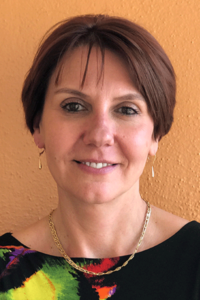
Five experts reviewed critical lessons from two decades of surveillance and observational research into youth-onset diabetes during a two-hour virtual symposium at the Scientific Sessions. The expert presenters are key participants in the SEARCH for Diabetes in Youth Study, a national multi-center study with centers in California, Colorado, Ohio, South Carolina, and Washington.
The session, Twenty Years of Pediatric Diabetes Surveillance—What Do We Know and Why it Matters—The SEARCH for Diabetes in Youth Study, can be viewed by registered meeting attendees at ADA2020.org through September 10, 2020. If you haven’t registered for the Virtual 80th Scientific Sessions, register today to access all of the valuable meeting content.
Symposium chair Dana Dabelea, MD, PhD, Director of the LEAD Center and the Conrad M. Riley Endowed Professor at the Colorado School of Public Health, previews the session and discusses the SEARCH study, which is funded by the Centers for Disease Control and Prevention and the National Institute of Diabetes and Digestive and Kidney Diseases. Dr. Dabelea is also Principal Investigator of the SEARCH study center in Colorado.
What topics are covered during the symposium?
Dr. Dabelea: Jean M. Lawrence, ScD, MPH, MSSA, Principal Investigator at SEARCH’s California center, describes the current burden and trends in the prevalence and incidence of youth-onset type 1 diabetes and type 2 diabetes by race and ethnicity, age, and sex, providing information on which types of pediatric diabetes are increasing and which groups are at highest risk. The landscape of pediatric diabetes has changed in the last 20 years, from predominantly type 1 diabetes in youth of Caucasian origin, to a much diverse disease phenotype, with both type 1 and type 2 in children and an increasing proportion of minority race and ethnic groups affected.
Amy K. Mottl, MD, MPH, FASN, Co-Investigator at SEARCH’s Carolina center, discusses the clinical course of youth-onset diabetes, the development of risk factors for complications, the development of chronic diabetes-related morbidity (microvascular and macrovascular complications), and associated mortality. She emphasizes the heavier burden of these outcomes in specific groups, including youth with type 2 diabetes, youth of minority race or ethnic background, and of low social-economic status and limited access to care, which highlights the need for heightened prevention and control efforts in targeted populations.
Katherine A. Sauder, PhD, Early Stage Investigator at SEARCH’s Colorado center, discusses how social issues such as food insecurity, behavioral issues such as diet and physical activity, and psychological issues such as anxiety and depression correlate to youth-onset diabetes and how they influence disease progression in terms of glycemic control, risk factors for complications, and quality of life.
The symposium concludes with Catherine Pihoker, MD, Principal Investigator at SEARCH’s Washington center, covering care-related aspects of youth-onset diabetes. She focuses on barriers to care, especially during thetransition from pediatric to adult care. SEARCH has discovered that many youth with diabetes, particularly those from low-resourced racial or ethnic minority populations, are not meeting recommended guidelines for diabetes care. Challenges in the transition from pediatric to adult care were also observed for both type 1 and type 2 diabetes.
What will viewers learn from the symposium?
Dr. Dabelea: The trends in the burden and risk of both type 1 and type 2 diabetes suggest that there is a need to continue and likely expand comprehensive and sustainable surveillance efforts. Given the evidence of early complications despite current therapeutic approaches, continuing long-term follow up of youth with diabetes is necessary to expand our understanding of its natural history so that the most appropriate approaches to primary, secondary, and tertiary prevention of diabetes and its complications can occur.
Researchers will get up-to-date, state-of-the-art findings that highlight current gaps and research needs. Clinicians will get evidence-based data that early monitoring for microvascular complications and cardiovascular risk factors is necessary, as is effective treatment of diabetes-related complications and risk factors. Identifying and addressing barriers to receiving care are essential, particularly in the young adult population, when many life transitions are occurring.
What’s next for SEARCH?
Dr. Dabelea: Although participant enrollment and data collection are ending in 2020, we expect many new and impactful SEARCH publications in the coming years that will incorporate the most recent data collection cycle that we’re just beginning to analyze. This is a unique inception cohort followed from disease onset, longitudinally, as youth become adults. It will be important to continue to follow this cohort to better understand how to prevent diabetes-associated morbidity and mortality, which becomes increasingly prevalent with age.
VIEW THIS PRESENTATION
Already registered?
View this presentation at ADA2020.org
Not yet registered?
Register now to access all presentations from the Virtual 80th Scientific Sessions